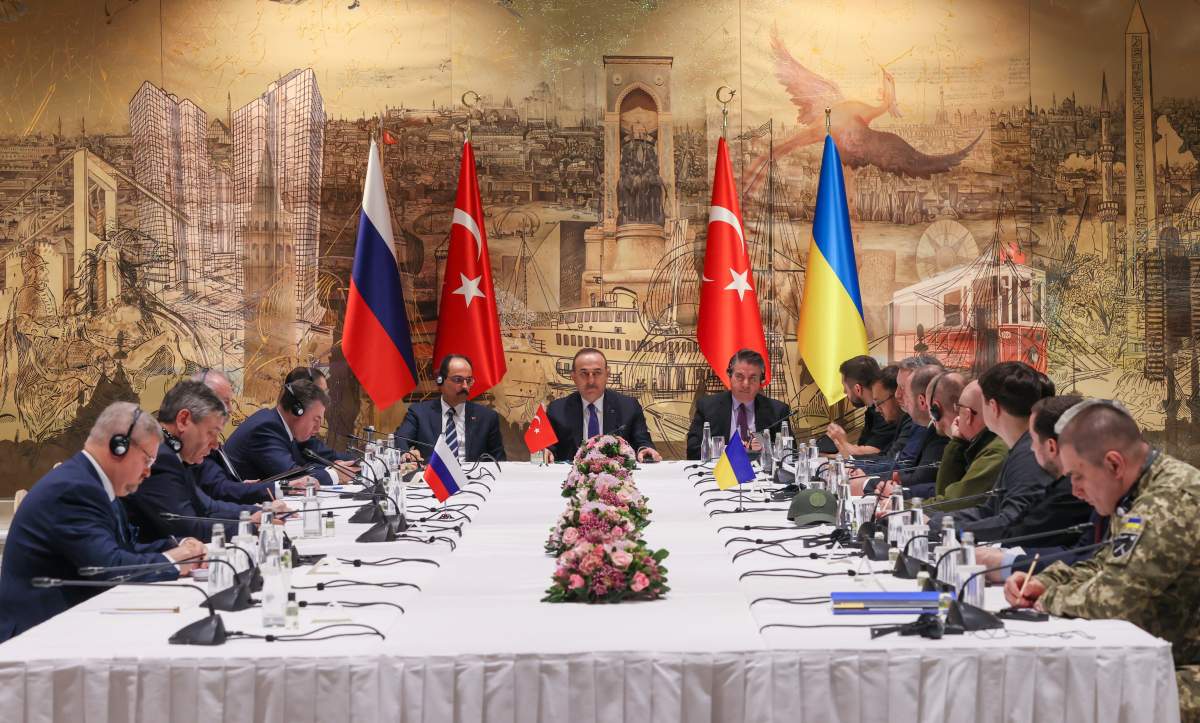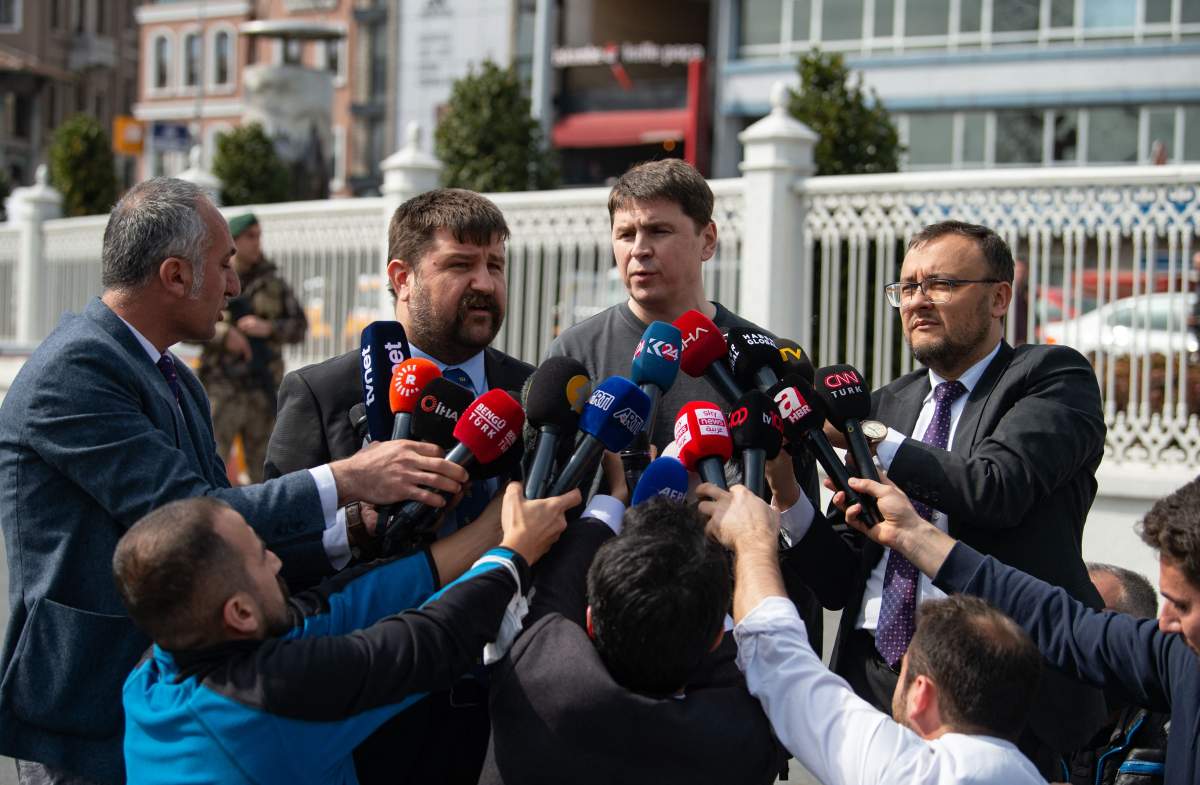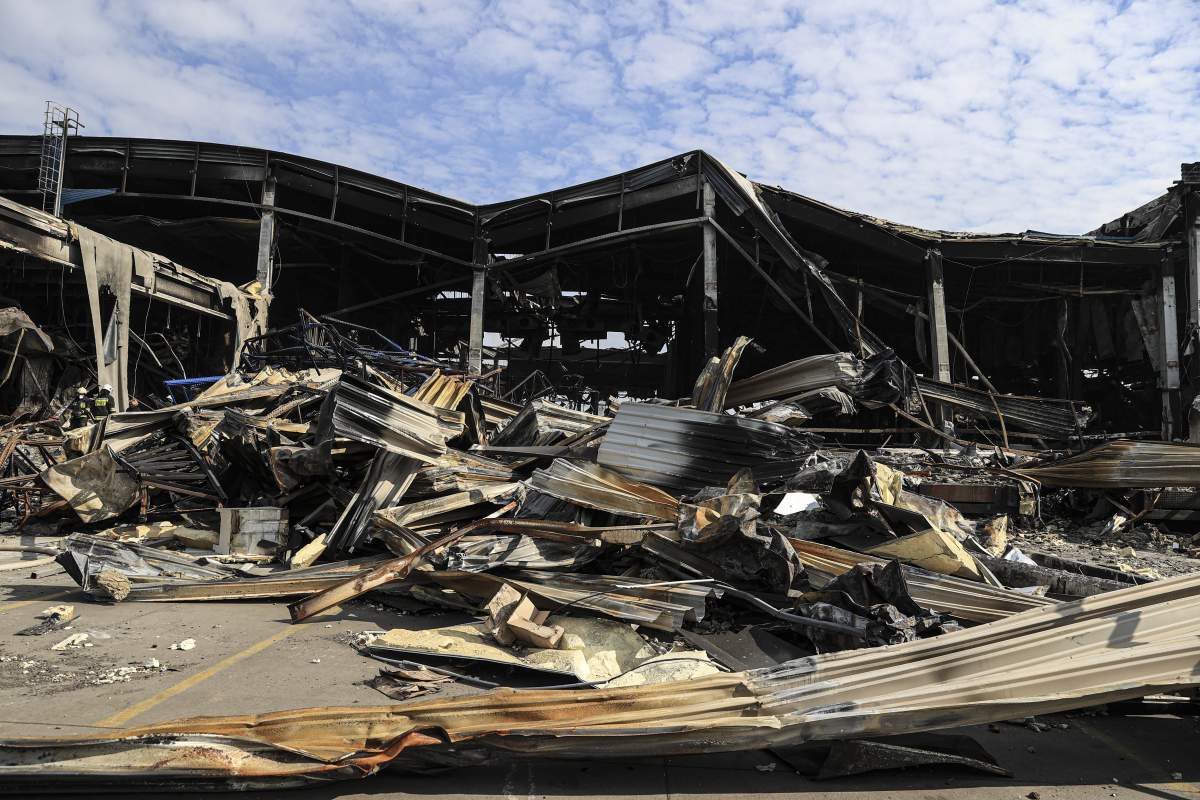Ukraine proposed accepting neutral status and floated Canada as a potential security guarantor at peace talks with Russia in Turkey on Tuesday.

Talks have been ongoing throughout the conflict, which began on Feb. 24 when Russian President Vladimir Putin ordered his troops into the country, but have yet to produce any breakthroughs.
Yet with Russian forces bogged down in Ukraine, new hopes emerged for peace at the latest round of in-person talks in Istanbul.
Here’s what you need to know:
Ukraine pitches neutrality, Russia to reduce forces near Kyiv
Ukraine proposed accepting neutral status in exchange for security guarantees at the talks, meaning it would not join military alliances or host military bases, Ukrainian negotiators said Tuesday.
The proposals also include a 15-year consultation period on the status of annexed Crimea and would only come into force in the event of a complete ceasefire, the negotiators told reporters in Istanbul.
The fate of the Donbas region, which Russia demands Ukraine cede to separatists, would be discussed by the Ukrainian and Russian leaders, they added. Any peace deal would require a referendum in Ukraine.
The Russian delegation said it would study and present the proposals to Putin.
Furthermore, Russia promised to drastically cut its military activity focused on Kyiv and Chernihiv, its deputy defence minister said on Tuesday, after talks between the two sides.
Canada floated as security guarantor
Ukrainian negotiators included Canada in a list of potential countries that could be its security guarantors under a potential agreement, negotiators said.
Ukraine envisions security guarantees along the lines of the NATO military alliance’s Article 5, its collective defence clause. Poland, Israel, Turkey and Canada could be among the potential security guarantors. Russia, the United States, Britain, Germany and Italy could also be involved.

“If we manage to consolidate these key provisions, and for us, this is the most fundamental, then Ukraine will be in a position to actually fix its current status as a non-bloc and non-nuclear state in the form of permanent neutrality,” negotiator Oleksander Chaly told reporters.

Get daily National news
“We will not host foreign military bases on our territory, as well as deploy military contingents on our territory, and we will not enter into military-political alliances. Military exercises on our territory will take place with the consent of the guarantor countries.”
Ukraine asks Russia to drop opposition for it to join EU
Ukraine also asked Russia to drop its opposition for the nation’s desire to join the European Union, Moscow’s top negotiator said.
Vladimir Medinsky made the comment on state television after the talks wrapped up.
Throughout the conflict, Ukrainian President Volodymyr Zelenskyy has pleaded for the EU to allow Ukraine to join the bloc, a move Russia was not in favour of.
Zelenskyy signed an official request to join the bloc earlier in the war, and delivered a speech to the EU that was so stirring it caused the official translator to choke up with emotion.
Istanbul talks mark most significant progress yet: Turkish foreign minister
The talks in Istanbul were the most significant in the conflict to date, the country’s foreign minister said.
Mevlut Cavusoglu said Turkey welcomed the two countries reaching compromise and a common understanding on certain issues, and said the war must end quickly.

He also said that “more difficult issues” were expected to be discussed between Ukrainian and Russian foreign ministers at a later date, and that the leaders of the two countries could meet at a later date.
A second round of talks originally scheduled for Wednesday will no longer happen, the Turkish foreign ministry later said.
Meanwhile, U.S. Secretary of State Antony Blinken was not so optimistic about the talks, saying Washington has not seen “signs of real seriousness” from Russia in pursuing peace.
It’s up to Ukraine to characterize whether there was real progress in the talks, but added the U.S. is focused on Russia’s actions, not its words, he said.
Russia says talks still have a long way to go
Despite the apparent positivity emerging from the negotiations, the talks to end the war still have a long way to go, Medinsky said.
In an interview with state media, he said Russia’s decision to scale back its operations around Kyiv and northern Ukraine isn’t a ceasefire.
“This is not a ceasefire but this is our aspiration, gradually, to reach a de-escalation of the conflict at least on these fronts,” Medinsky said, adding Moscow agreed to a possible meeting between Putin and Zelenskyy once peace was reached.
“However, to prepare such an agreement on a mutually acceptable basis, we still have a long way to go,” he said.
— with files from Reuters.











Comments
Want to discuss? Please read our Commenting Policy first.